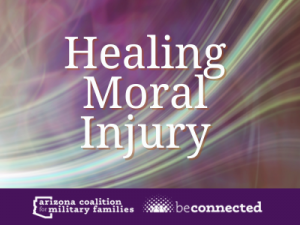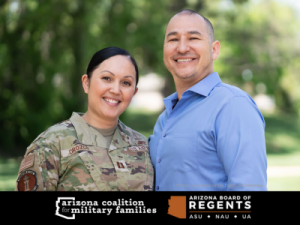
June marks PTSD Awareness Month, a time when we work to raise awareness about Post-Traumatic Stress Disorder (PTSD) and support individuals affected by this condition. One of my personal goals is to ensure that anyone who is experiencing PTSD understands that seeking treatment is a sign of courage and strength.
We have certainly come a long way as a society and in our military culture when it comes to PTSD. I think it’s safe to say that the majority in our ranks as veterans and current service members understand PTSD is real, it exists, and it is a serious medical condition. We know now that PTSD symptoms can happen at any age, and they can come and go.
Recognizing PTSD Symptoms
When you have PTSD, it can be challenging to feel safe and secure. Thoughts of a past traumatic event can consume your thoughts leading to changes in behavior, beliefs, relationships, and emotions. But, how do you know if you have PTSD?
The Mayo Clinic offers a helpful article on recognizing symptoms of PTSD. Symptoms are not the same for everyone and may look different in different people. It is important to remember that everyone experiences PTSD in their own unique way. Here are some things to be aware of that may suggest further investigation with a healthcare professional for PTSD:
- Memories of a past traumatic event or events that interfere with daily activities
- Unwanted, recurring memories, nightmares, or flashbacks of past trauma
- Feeling emotional and/or physical distress when reminded of past traumatic events
- Difficulty in relationships, feeling detached
- Lack of interest in activities previously enjoyed
- Emotional numbness or the inability to experience positive emotions
- Being on guard, being startled, having trouble sleeping or concentrating
If you suspect that you may have symptoms or if you notice a loved one with symptoms – it’s important to seek care from a professional who is experienced in treating PTSD. A good place to start is your primary care physician. While he or she may not be the one to ultimately provide your treatment, they will have the ability to get you to the right person or place that can. Seeking a professional diagnosis and treatment is imperative to begin the journey toward healing and recovery.
Seeking Diagnosis and Treatment
If you suspect you may be experiencing symptoms of PTSD, it is essential to consult with a mental health care provider for an accurate diagnosis. This initial step plays a vital role in accessing effective treatment options tailored to your specific needs.
Only a mental health care provider can diagnose you with PTSD. And, knowing if you have PTSD is the first step to getting effective treatment.
Effective treatments exist for PTSD, even if you have been living with symptoms for an extended period. Seeking treatment for PTSD will help you feel better and give you back a better sense of being in control of your life. The VA has a really helpful tool that walks you through the treatment options that are available for PTSD. You can access the VA’s PTSD Treatment Decision Aid here.
You Are Not Alone
Remember, you are not alone in this journey, and there are countless resources available to support you and people who genuinely want to help you. This includes the caring people who answer the Be Connect support line, 866-4AZ-VETS. Many of these folks are veterans. They understand where you’re coming from, so never hesitate to call and get matched to helpful resources and support.








